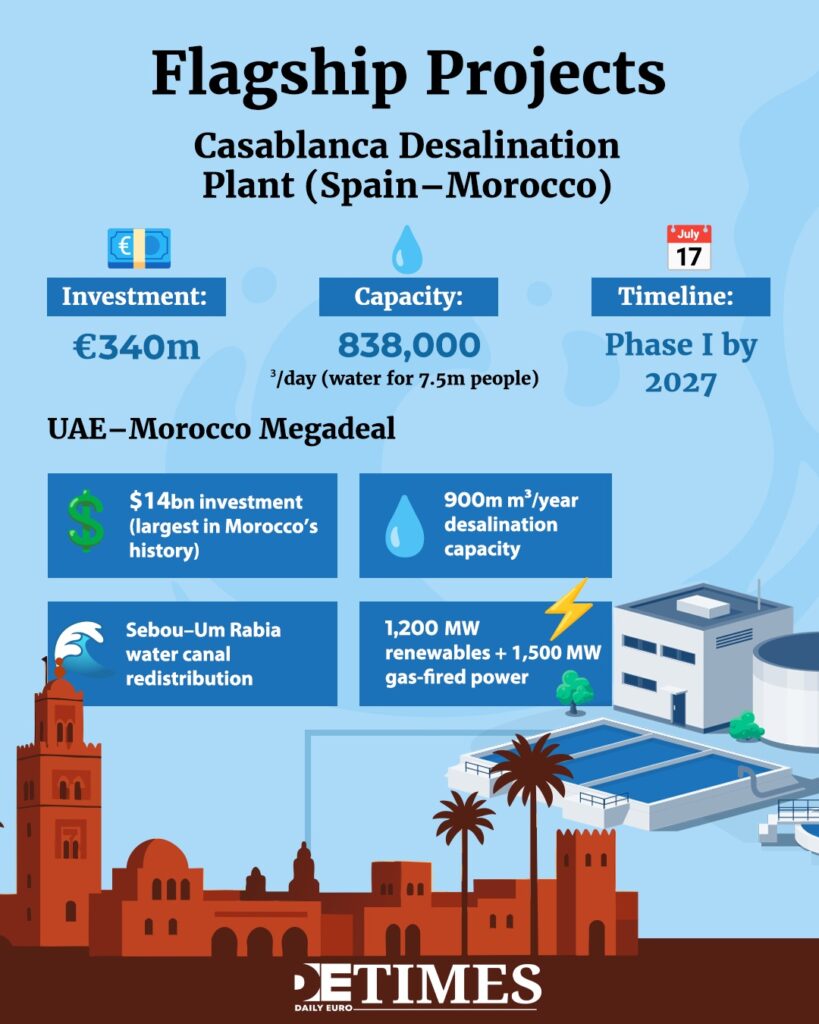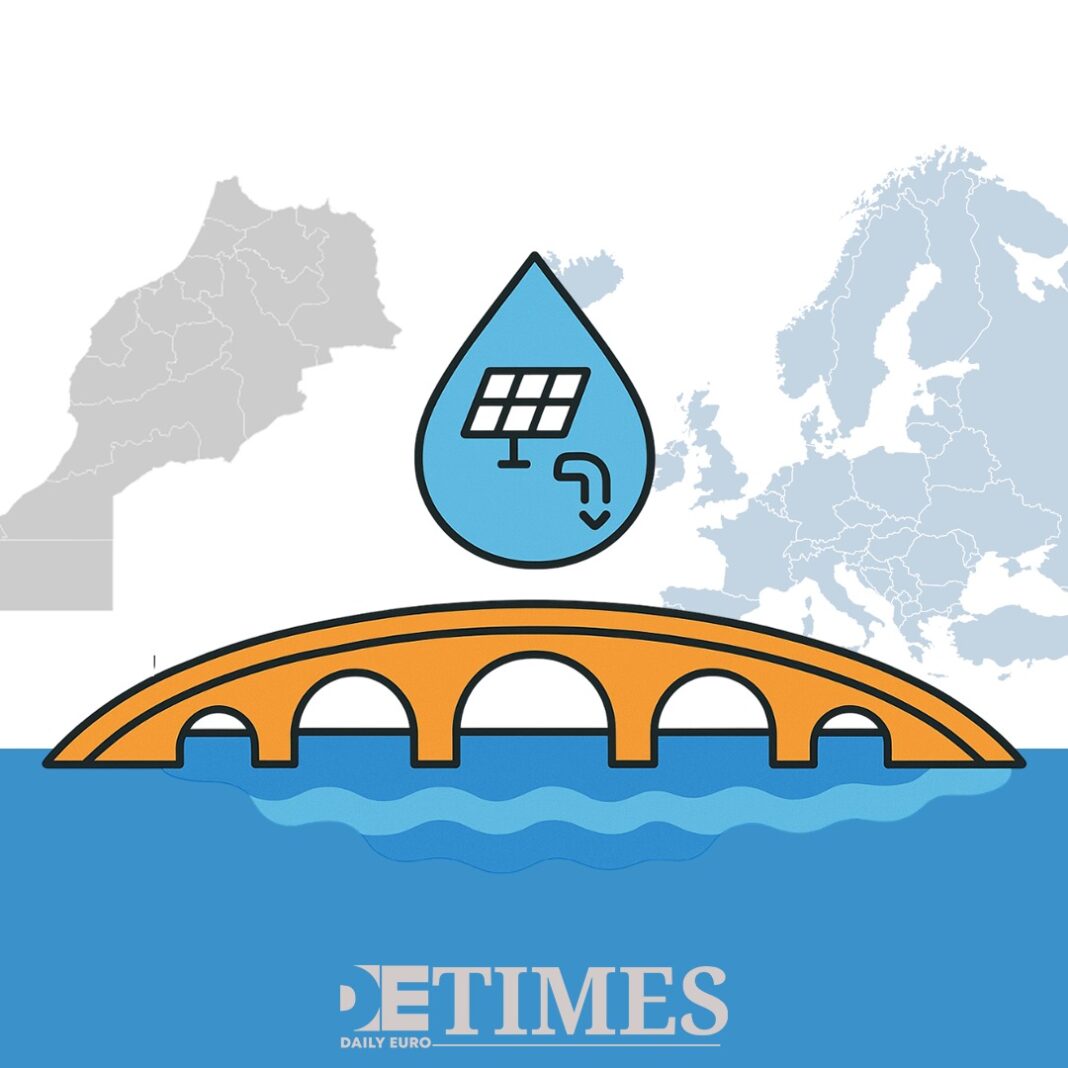In recent years, water ceased to be just an environmental concern and has instead become a strategic resource comparable to oil.
Chronic water shortages threaten agriculture, the economy, and social stability in the kingdom. Farmers are facing shrinking irrigated land, urban areas are experiencing water shortages that are causing social unrest, and income instability is exacerbating the rural-urban divide.
Water Diplomacy: Bridge Between Europe and Africa
This situation is stimulating the development of a new form of diplomacy: water diplomacy.
Europe and Morocco are forming partnerships to share technologies and resources. Europe is supplying cutting-edge solutions: solar desalination plants, smart irrigation systems and water recycling technologies.
Morocco is becoming a key partner for the EU in the Mediterranean, expanding cooperation beyond energy and migration to include water security.
Macro Projects: Casablanca Desalination Plant
In May 2025, Spain announced a €340 million investment in the construction of Africa’s largest desalination plant in Casablanca.
With a capacity of 838,000 m³ of water per day, the plant will provide water to around 7.5 million people. The project is being implemented through a public-private partnership involving Acciona and Moroccan companies.
The first phase is scheduled for completion in 2027, demonstrating how joint efforts, innovation, and trust strengthen water diplomacy.
Innovation: Water from Air Project
By July 2025, Morocco and the Czech Republic signed an agreement to pilot the Water from Air project: a technology that makes it possible to obtain drinking water from air humidity. This initiative confirms Morocco’s role as a hub for water innovation and strengthens cooperation with Europe.
Morocco is also collaborating with Germany on solar-powered irrigation systems to optimise agricultural water use.
The kingdom is also working with France to implement advanced wastewater recycling technologies in urban areas. Partnerships with the Netherlands focuses on smart water management platforms that use real-time data to prevent shortages and improve distribution efficiency.

Morocco and the UAE
In May 2025, Morocco and the United Arab Emirates signed a $14 billion agreement: the largest investment deal in Morocco’s history. The agreement aims to develop water and energy infrastructure, including the construction of desalination plants, waterways, and renewable energy facilities. The project will include desalination plants with a total capacity of 900 million m³ of water per year, as well as a water canal between the Sebou and Um Rabia rivers to redistribute water to arid regions.
The project also includes the construction of 1,200 MW of new renewable energy capacity and a combined-cycle gas-fired power plant with a capacity of nearly 1,500 MW. These initiatives strengthen cooperation between Morocco and the UAE in water security and sustainable development.
Conflict or Cooperation: Water Wars
In recent years, “water wars” have dominated headlines rather than cooperation. Egypt and Ethiopia, continue to contest control over the Nile with upstream states disputing Cairo’s ‘historical claim’ to the Nile flow citing colonial agreements.
However, historical experience shows that disputes over water often lead to agreements and cooperation. Since ancient Mesopotamia, more than 3,600 water agreements have been concluded, demonstrating the ability of shared interests to stimulate diplomacy.
In Morocco, water scarcity threatens agriculture, social peace and the economy, making investment in large projects like the Casablanca desalination plant essential. European water diplomacy not only brings technology, but also strengthens institutional ties. History shows that cooperation is more effective than conflict: joint investment in infrastructure and innovation can bring stability, resilience, and prosperity to the region.
Read the Latest Articles on DET!
Relations in the Rear View For Now: The U.S.-India Diplomatic Crisis
A New Wave of Bioethics: The Frontiers of Genetic Engineering
Social Capital Lives On: The Story of Germany and Russia


